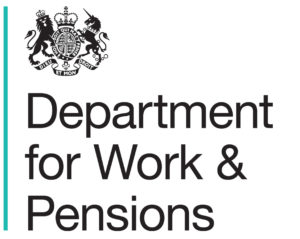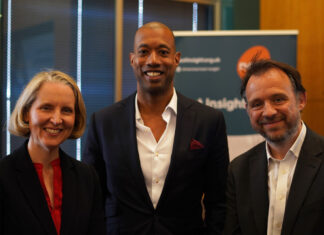Today, ground-breaking savings pilots have been announced to test new forms of flexible saving that are designed to fit with self-employed people’s often variable and uncertain incomes. Nest Insight, a public-benefit research and innovation hub, is collaborating on two research trials: one with Penfold, a fintech pension provider; and one with Moneyhub, an open data and payments platform. These new pilots are supported by the Department for Work and Pensions as part of a multi-year programme of work testing ways to help self-employed people save for retirement.
Auto enrolment has greatly expanded participation in workplace pension saving. Yet certain groups are not benefiting from the system, including self-employed people. In the UK, around 4.3 million are in some form of self-employment [1], but it’s estimated that only 16% of them are actively saving into a workplace or personal pension. This compares to 88% of the working population eligible for auto enrolment through their employer.[2]
Previous Nest Insight research identified that control and flexibility to changing circumstances were important factors for self-employed people when it comes to saving.
The pilots will test different forms of flexible savings solutions and ‘nudges’. These approaches could be introduced into the online tools that self-employed people already use to manage their work and finances. The solutions being trialled include:
- supporting people to save a percentage of their income
- nudging people to save at relevant moments, for example when they receive a large payment
- nudging people to save some of the difference between monthly income and expenditure in months when income is higher
- giving people the choice to connect different kinds of savings vehicle to save into for the future.
The outcomes of the pilots will be analysed by Nest Insight and publicly shared next year.
Guy Opperman, Minister for Pensions and Financial Inclusion, said:
“Automatic enrolment has succeeded in transforming pension saving with more than 10 million workers enrolled into a workplace pension to date, and it is important that the self-employed are not left behind. Pilots such as these are vital in understanding how to better help self-employed people achieve the retirement they want.
“We have worked with Nest Insight to ensure a variety of flexible saving options are tested and I look forward to reviewing the outcomes.”
Chris Eastwood, Co-founder and Co-CEO of Penfold, said:
“We’re delighted to be working with Nest Insight on an innovation that should level the playing field between self-employed savers and the wider working population, empowering those with variable finances to set easy and clear rules for their savings.
“We set up Penfold to equip everyone, regardless of their employment status, with the tools and knowledge to save enough for life after work. The self-employed were our initial focus as a business and it is our solid understanding of their differentiated needs combined with our expertise in technology that has allowed us to develop solutions capable of encouraging better saving habits.
“The pensions industry has been slow to respond to changes in how people live and work today and, with the number of self-employed on the rise, it’s critical we factor their needs and saving preferences into all our future products and services.”
Samantha Seaton, CEO at Moneyhub, said:
“Moneyhub is delighted to be working with Nest Insight on this important research project. Financial wellbeing is at the heart of our business mission and through our Open Data platform and behavioural nudges we make a positive impact on consumer outcomes.
“The pandemic has been particularly hard for the self-employed to endure, so helping them to find the capacity to save each month and to easily sweep money to their preferred savings vehicle, is both timely and important. We look forward to this and other opportunities to support Nest Insight in their innovative and valuable work.”
To help support their members, Community Trade Union will be sharing information with their membership about the flexible savings approach being trialled by Moneyhub.
Kate Dearden, Head of Research, Policy and External Relations at Community Trade Union, said:
“Self-employed people want to save for retirement, but it is difficult to do so when you are budgeting to invest in your business and make ends meet, as well as managing an income that fluctuates month-to-month.
“The traditional pensions system that requires people to save a fixed amount each and every month isn’t designed with self-employed people in mind, and doesn’t work for them because of this. The proportion of self-employed people paying into a pension is now at a record low.
“Our members tell us that they want more support in saving for retirement. To meet the needs of self-employed people to ensure they don’t face destitution in retirement, pensions solutions need to be flexible and adapt to changing circumstances to enable people to save when they can.
“That is why we are incredibly pleased that our members will be offered the opportunity to participate in this trial. We hope that the solutions being piloted will help self-employed people have control over the way they save for the future.”
Jo Phillips, Director of Research and Innovation at Nest Insight, comments:
“The low level of saving for retirement by self-employed people is a well-known problem. It’s not that self-employed people aren’t interested – there’s a real appetite for saving for the longer-term. But self-employed people have told us that it can be difficult to find ways to save that fit with their lives and context – they often have limited time and headspace combined with variable income and future uncertainty.
“So far, few solutions have been developed to address these barriers. That’s why we’re delighted to be working with leading fintechs Penfold and Moneyhub to explore how self-employed people interact with these flexible technology-based solutions which we believe could be better suited to their needs. We hope these insights will inform the industry and policymakers on how best to support self-employed people to save. The solutions being trialled are intended to be scalable and, if successful, could make it much easier for self-employed people to save towards future financial security.”
[1] EMP14: Employees and self-employed by industry – Office for National Statistics (ons.gov.uk)
[2] The Department for Work and Pensions, Workplace pension participation and savings trends of eligible employees’ official statistics: 2009 to 2020, (September 2021): Workplace pension participation and savings trends of eligible employees: 2009 to 2020 – GOV.UK (www.gov.uk)
ENDS
Notes to editors
Further information
Related press releases:
- Issued 14 December 2020: Appetite for self-employed saving solution remains high, despite impact of Covid-19
- Issued 16 September 2020: Nest Insight and DWP Covid-19 impact research to inform design of savings solutions for the self-employed
- Issued 10 October 2019: Supporting self-employed people to save for retirement
About Nest Insight

Nest Insight is a collaborative research unit set up by Nest Corporation to help understand and address the challenges facing Nest members and other defined contribution savers. For more information visit: nestinsight.org.uk
About our programme partner, The Department for Work and Pensions

The Department for Work and Pensions (DWP) is responsible for welfare, pensions and child maintenance policy. As the UK’s biggest public service department, it administers the State Pension and a range of working age, disability and ill health benefits to around 20 million claimants and customers. For more information, visit: gov.uk/government/organisations/department-for-work-pensions
This work is part of the broader programme of research outlined in DWP’s publication: Enabling retirement savings for the self-employed: pensions and long-term savings trials.
About Nest Insight’s strategic partners
![]()
Invesco is an independent investment management firm dedicated to delivering an investment experience that helps people get more out of life. Building on its strong track record in defined contribution research, and its existing partnership with the University of Cambridge Judge Business School, Invesco partnered with Nest Insight to support its ambitious programme of research, publications and events. For more information, visit: invesco.co.uk NYSE: IVZ
![]()
BlackRock is a global investment manager serving the UK market for more than 30 years with a purpose to help more and more people experience financial well-being. BlackRock’s Emergency Savings Initiative is made possible through philanthropic support from the BlackRock Foundation. The initiative brings together partner companies and non-profit financial health experts to make saving easier and more accessible for low- to moderate-income people across the US and UK, ultimately helping more people to establish an important financial safety net. For more information, visit blackrock.com/corporate/about-us/social-impact






